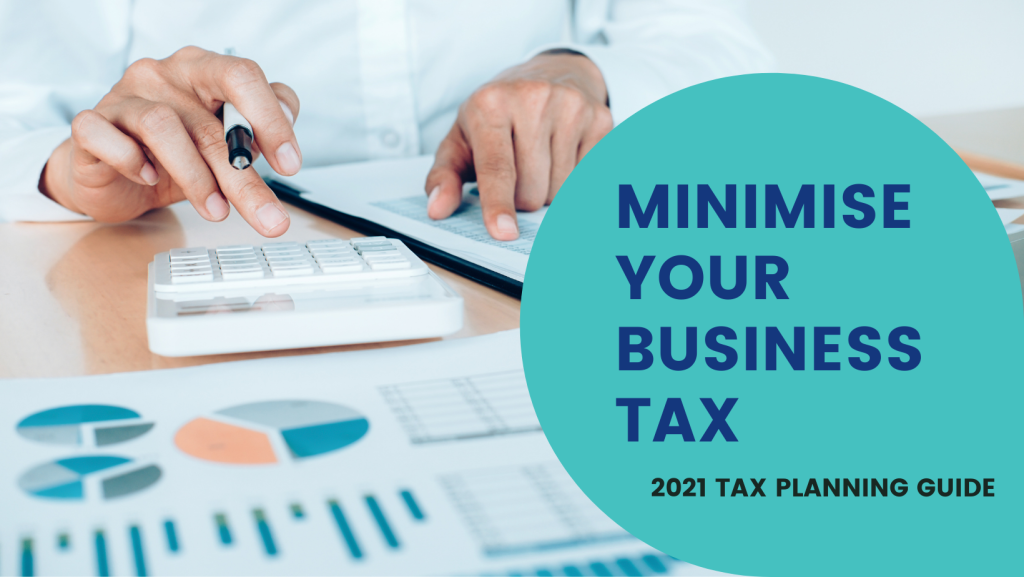Imagine what you could do with tax saved?
Are you a business owner looking for tax planning strategies to minimise your tax obligations in 2021? You’re not alone — taxes can be a significant financial burden, but with the right knowledge and preparation, it’s possible to reduce your outgoings. This guide will provide an overview of the key considerations when it comes to business tax planning as well as present tips and insights into how you can strategically manage taxes. Armed with this information, you’ll be able to make informed decisions that could see your bottom line benefit significantly throughout 2021.
- Reduce your home loan
- Top up your super
- Save for a holiday (when we can travel again!)
- Deposit for an Investment Property
- Pay for your children’s education
- Upgrade your Car
Here’s a guide to the strategies you can use to minimise your business tax.
REDUCTION IN COMPANY RATES
The 2021 company tax rate for businesses with less than $50 million turnover is 26%, if 80% or less of a company’s assessable income is “passive income” (such as interest dividends, rent, royalties and net capital gains).
If you use a Trust structure, one strategy is to allocate profits to a “Bucket Company” and cap your tax at 26% for the 2020 year. Note that this company must qualify as a “base rate” entity to be eligible for the lower 26% company tax rate. Talk to us today to see whether this strategy would be applicable to your circumstances.
TEMPORARY FULL EXPENSING FOR ASSET PURCHASES
Businesses with an aggregated turnover of less than $5 billion can immediately deduct the business portion of the cost of eligible new depreciating assets.
For businesses with an aggregated turnover of less than $50 million, temporary full expensing also applies to the business portion of eligible second-hand depreciating assets.
Some assets not eligible for full expensing are trading stock, buildings, capital gains tax assets and assets not used or located in Australia for the principal purpose of carrying on business.
To be eligible to claim the deduction in the 2021 year, you must hold the asset and start to use it or have it installed ready for use before 30 June 2021. Talk to us today about your options!
REDUCTION IN COMPANY RATES
Businesses with an aggregated turnover of less than $5 billion can immediately deduct the business portion of the cost of eligible new depreciating assets.
For businesses with an aggregated turnover of less than $50 million, temporary full expensing also applies to the business portion of eligible second-hand depreciating assets.
Some assets not eligible for full expensing are trading stock, buildings, capital gains tax assets and assets not used or located in Australia for the principal purpose of carrying on business.
To be eligible to claim the deduction in the 2021 year, you must hold the asset and start to use it or have it installed ready for use before 30 June 2021. Talk to us today about your options!
MAXIMISE DEDUCTIBLE SUPER CONTRIBUTIONS
The tax deductible super contribution limit (or “cap”) is $25,000 for all individuals under age 75. Unless you have available carry-forward contributions (unused concessional contribution cap from 2019 and 2020), do not go over this limit or you will pay more tax!
Note that employer super guarantee contributions are included in these caps. Where a concessional contribution is made that exceeds these limits, the excess is included in your assessable income and taxed at your marginal rate, plus an excess concessional contributions charge.
For the contribution to be tax deductible in the 2021 year, they must be received by the fund by 30 June 2021.
SALARY PACKAGE TOOLS OF TRADE / FBT EXEMPT ITEMS
The purchase of Tools of Trade and other FBT exempt items for business owners and employees can be an effective way to buy equipment with a tax and GST benefit. Items that can be salary packaged include handheld/portable tools of trade, computer software, notebook computers, personal electronic organisers, digital cameras, briefcases, protective clothing, and mobile phones.
Where the employee has purchased the items directly, the employer can reimburse the employee and if structured correctly, will be entitled to a tax deduction for the reimbursement payment to the employee (for the equipment cost), claim any GST input credit, and the employee’s salary package will only be reduced by the GST-exclusive cost of the items purchased.
You should buy these items before 30 June 2021.
PAY EMPLOYEE SUPERANNUATION PRIOR TO 30 JUNE
To claim a tax deduction in the 2021 financial year, you need to ensure that your employee superannuation payments are received by the super fund or the Small Business Superannuation Clearing House (SBSCH) by 30 June 2021.
You should avoid making last minute superannuation payments as processing delays may cause them to be received after year-end. If for any reasons you end up having to make last minute payments and you would like to claim them as deductions for the current year, contact us immediately and before you make any payments for possible resolutions.
REPAIRS & MAINTENANCE
Make payments for repairs and maintenance (business, rental property, employment) BEFORE 30 June 2021.
DEFER INCOME
If possible, defer issuing further invoices and receiving cash/debtor payments until after 30 June 2021. This strategy pushes tax payable to future years.
BRING FORWARD EXPENSES
Purchase consumable items BEFORE 30 June 2021. These include marketing materials, consumables, stationery, printing, office and computer supplies. Spend the money now and get the deduction this year.
COMMERCIAL PROPERTY DEPRECIATION
If you own a commercial property and haven’t already done so, arrange for the preparation of a Property Depreciation Report to allow you to claim the maximum amount of depreciation and building write-off deductions on the property. Tenants/leaseholders are eligible to claim depreciation deductions for fit outs carried out by them.
MOTOR VEHICLE LOG BOOK
Ensure that you have kept an accurate and complete Motor Vehicle Log Book for at least a 12-week period. The start date for the 12-week period must be on or before 30 June 2021. You should make a record of your odometer reading as at 30 June 2021 and keep all receipts/invoices for motor vehicle expenses.
For business owners operating as a sole trader or in partnership, an alternative (with no log book needed) is to simply claim up to 5,000 business kilometres (based on a reasonable estimate) using the cents per km method.
PRIVATE COMPANY (“DIV 7A”) LOANS
Business owners who have borrowed funds from their company in previous years must ensure that the appropriate principal and interest repayments are made by 30 June 2021. Note, that where the company has accumulated profits, the appropriate repayments can quite often be managed through company dividends. Discuss this with your Wardle Partners accountant prior to 30 June 2021.
Current year loans must be either paid back in full or have a loan agreement entered into before the due date of lodgement for the company return, or risk having it counted as an unfranked dividend in the return of the individual.
CAPITAL GAINS
If possible, arrange the Contract Date for the sale of Capital Gains assets ie. property and shares, to occur AFTER 30 June 2021.
The Contract Date is generally the key date for working out in which year the sale occurred and capital gains tax payable, not the Settlement Date!
SMALL BUSINESS CONCESSIONS – PREPAYMENTS
“Small Business Concession” taxpayers can make prepayments (up to 12 months) on expenses (e.g. interest only loans, rent, subscriptions) BEFORE 30 June 2021 and obtain a full tax deduction in the 2021 financial year.
TRUSTEE RESOLUTIONS
Ensure that the Trustee Resolutions are prepared and signed BEFORE 30 June 2021 for all Discretionary (“Family”) Trusts. Talk to us for more information about these resolutions.
YEAR-END STOCKTAKE / WORK IN PROGRESS
If applicable, you need to prepare a detailed Stock Take and/or Work in Progress listing as at 30 June 2021. Review your listing and write-off any obsolete or worthless stock items.
Note that if you qualify as a small business, you can choose not to conduct a stocktake (and account for changes in the value of your trading stock) if there is a difference of $5,000 or less between:
-
- the value of your stock at the start of the income year
- a reasonable estimate of the value of your stock at the end of the year.
Talk to us about your different options for valuing Stock, and how they affect your tax payable.
WRITE-OFF BAD DEBTS
Review your Trade Debtors listing and write-off all bad debts ensuring they are entered into your accounting system BEFORE 30 June 2021.
IMPORTANT INFORMATION
This is general advice only and does not take into account your financial circumstances, needs and objectives. Before making any decision based on this document, you should assess your own circumstances or seek advice from your adviser at Wardle Partners.
We are actively working with client already to SAVE TAX for 2021. If you would like us to do the same for you, please CONTACT us now.

To download this content as a PDF, please click here.


